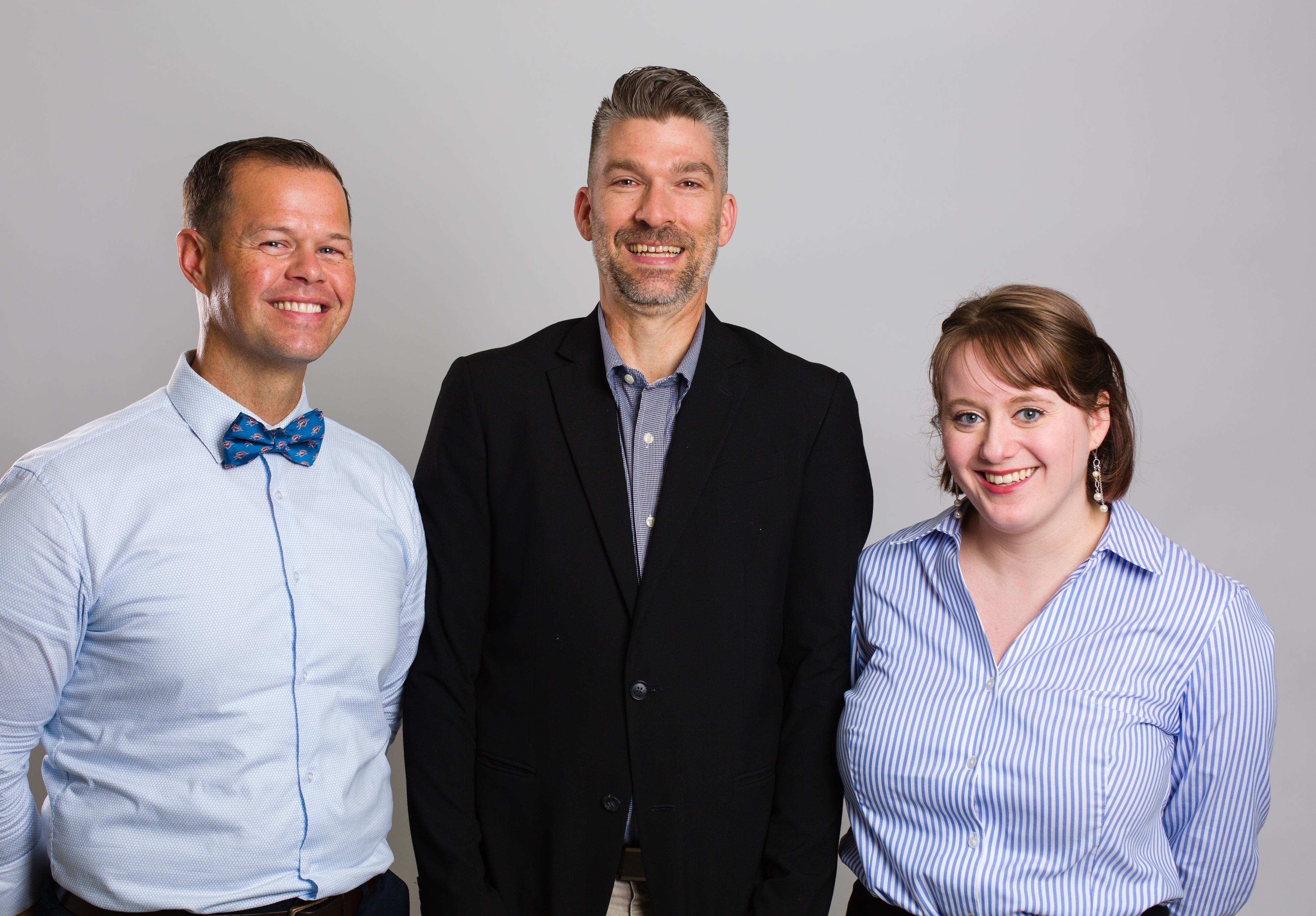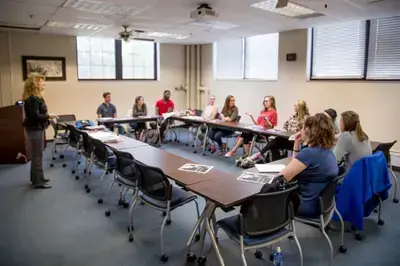We offer many different services to our faculty. Whether you are looking for a faculty development workshop, a one-on-one consultation, classroom observations, course design assistance, or simply a venue to interact with the campus community, you will find it here.
 |
At OCU, the Educational Technologist is a member of the CETL team, and their job duties include D2L system administration, troubleshooting, and training; as well as instructional design, and the administration of other learning technologies, such as Zoom and Turnitin. The Educational Technologist also delivers both face-to-face and online workshops throughout the year on various technology and design related topics.
SERVICES
D2L System Management
Creation of non-academic courses and accounts in the D2L system. Non-academic enrollments. Upgrade management. Troubleshooting system issues.
Click HERE to request a non-academic D2L enrollment.
Course Design/Media
All levels of course design assistance, from full course designs (or redesigns) to assistance with individual assignments or multi-media lesson elements.
Consultations
One-on-one meetings with faculty to solve problems related to the use of technology in the classroom, or discuss how they might better incorporate technology into their teaching.
To schedule a consultation, click here.
CETL offers one-on-one consultations to faculty who wish to:
- reflect on their approach to teaching
- redesign existing course content/components
- develop an existing course in a new format
- develop their teaching into a source of research and inquiry.
 |
What is involved? Tailored to the individual faculty member's needs, the individual consultation process begins with an initial meeting to determine your project goals. Upon determining goals and outcomes, your CETL consultant will provide available support, knowledge, and resources to complete the mutually agreed-upon tasks. Our goal is simply to help - however you may need it.
How? Visit the link below to schedule your consultation, and a CETL team member will contact you. Depending on the nature of the request and the specific needs, the appropriate and available consultant will be assigned to you.
When? Anytime, but we do recommend that you are allow adequate time to meet, plan, and develop projects. We are available all year round. It is perfectly acceptable to reserve time for the following summer during the prior fall.
Confidentiality: We do not evaluate, nor do we share information (including digitally developed materials or video) gathered during consultations with those who we do evaluate. We do not (1) release the names of those who seek consultation unless authorized by those seeking consultation; (2) release information about feedback or services requested; or (3) make copies of consultation materials (including videos). All materials become the property of the instructor requesting consultation upon completion of the project.
To schedule a consultation, click here.
To schedule an observation, click here.
CETL offers formative, confidential and voluntary in-class observations upon request.
These observations:
- Provide an opportunity to discuss challenges and success in a confidential environment
- Support the sharing of teaching practice between colleagues
- Help us to discover new ways to approach the subjects we are passionate about
What is involved? The first question that you will be asked is, "What do you want us to look for while you teach?" In other words, what are your needs and goals? In addition, we know that the classroom is a complex environment; therefore, do not expect any observation to a one-size-fits-all "checklist" of actions to be a good teacher. The observation and feedback process is designed to explore the instructor's approach to pedagogy and communication of their discipline. Supplementary evidence of teaching (syllabus, class session plans, class learning goals, and learning activities) will be reviewed prior to the observation to better understand the learning environment.
 |
The Four-Step Process:
- Pre-Observation Meeting: mutual expectations and protocols are set, which includes gathering of contextual evidence
- Observation: descriptive notes of behaviors, classroom set-up, techniques, and student interactions are collected to supplement instructor reflection
- Post-Observation Meeting: discussion to determine an action plan to build on teaching practices and connect with personal and professional growth goals
- Follow-up/Reflective Summary: locate resources for future goals, to support faculty through planning and accountability, and to create a culture of ongoing professional practice
How? Visit the link below to schedule your observation, and a CETL team member will contact you. You will be assigned an observer based on scheduling needs and qualifications. Note: CETL observers have received specialized training in classroom observation, which is guided by research and practice.
To schedule an observation, click here.
To schedule a SGIF, click here.
CETL offers Small-Group Instructional Feedback to faculty who wish to:
- Provide an anonymous method for formative classroom feedback
- Collect and act on student feedback before or around mid-semester
- Gain confidential insight on the classroom learning environment through the lens of a trained professional
What is involved? Classroom Instructional Feedback takes approx. 20 minutes and is conducted while faculty members are not in the classroom learning environment. Trained Center professionals conduct a brief survey that includes questions like, "What aspects of this class do you feel are particularly effective for helping you learn the course materials?", and 'What suggestions do you have for improving your learning in this class?" This information is then collected and reported back to the faculty member.
What do the Center Team members tell the students? We introduce ourselves and explain that a) we are there at the faculty member's request, because s/he really wants to know how they can improve their learning; b) we want honest, specific, and constructive feedback; c) that this class time must not be used as a complaint session; d) information will be collected and randomly ordered to protect anonymity; and e) students can expect a follow-up classroom discussion on the collected information.
The Process: Faculty members are required to meet with the trained center team member before and after the Classroom Instructional Feedback session. Post-collection meetings occur within one week of the event.
Why? By all accounts, SIGFs positively impact student-faculty relationships and emerging research indicates that they also positively impact faculty's end-of-semester evaluations. Note: There is one exception to this rile: CIFs can work against faculty members if they do not follow up with students after and discuss how the learning environment will change in response to the information collected.
To schedule a SGIF, click here.
To see the schedule of all upcoming workshops & classes, click here.
CETL offers many informative workshops each year.
Workshops topics range from technology to pedagogy, and offer a hands-on approach to faculty and staff development. Participants will interact with other OCU community members, and leave with tools they can use in their classrooms or offices. The goal of every CETL workshop is to improve the teaching and learning here at OCU. Participants will receive Certificates of Participation for workshops they attend, which can be used as evidence of professional development.
 |
To see the schedule of all upcoming workshops & classes, click here.

